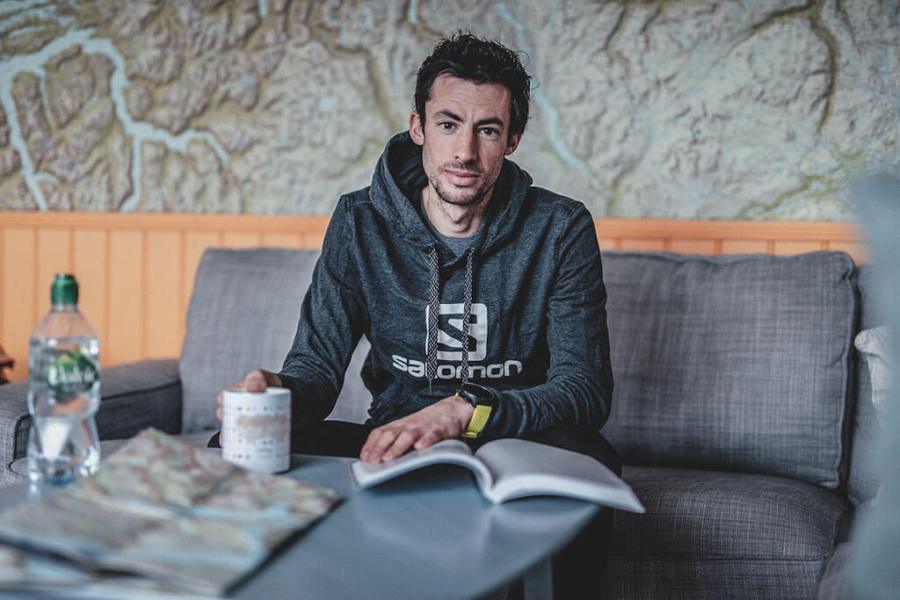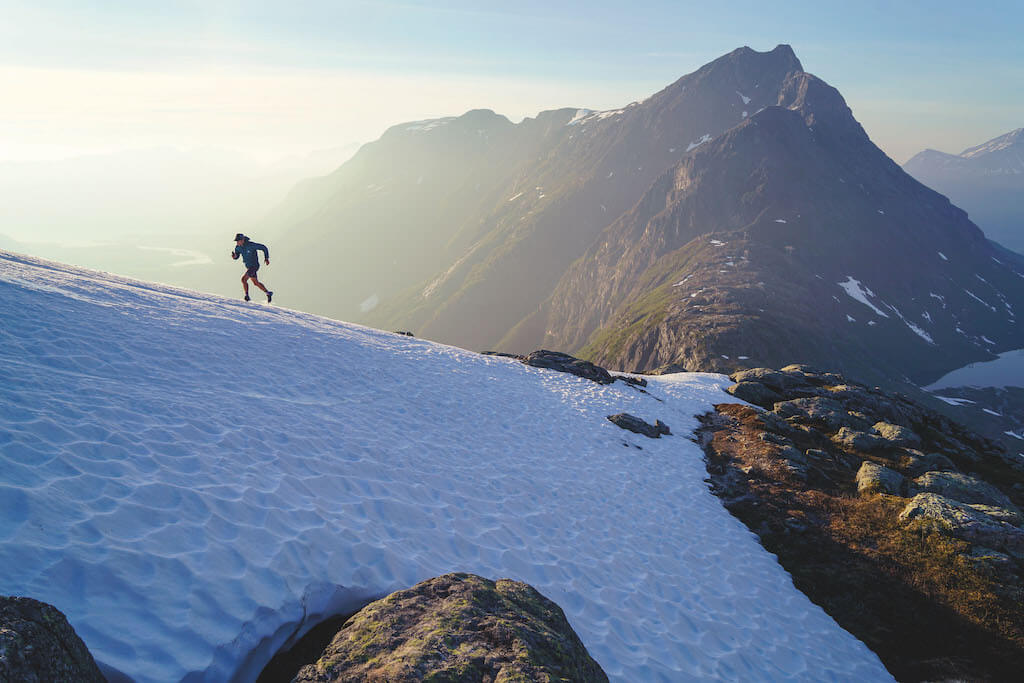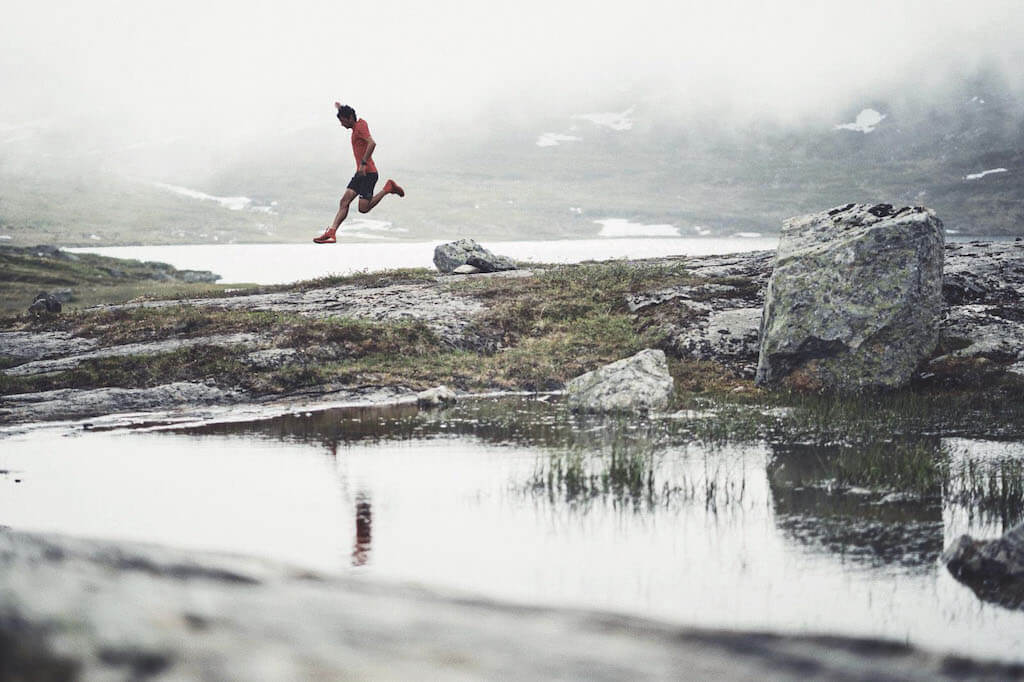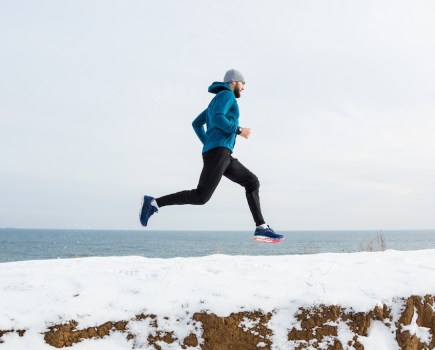MF meets the ‘360° mountain athlete’ who has redefined the limits of ultra running, reached the pinnacle of elite ski mountaineering and bagged multiple records for the ascent and descent of some of the world’s mightiest summits.
After cementing his legacy as arguably the greatest ultra runner of all time – with seven Skyrunning World Championship titles and multiple wins in just about every prestigious ultra marathon – 32-year-old Kilian Jornet proved he’s a dab hand at the art of speed mountaineering.
The Catalan, who grew up in a Pyrenean mountain hut at 2,000m altitude, culminated his ‘Summits of My Life’ project – in which he attempted ascent and descent records on some of the world’s most formidable peaks – with a record-breaking climb of Mount Everest (without ropes or bottled oxygen).
We sat down with the king of the mountains – who, by the way, boasts one of the highest VO2 max scores ever recorded – to talk endurance, the environment, and his passion for places on high.
Men’s Fitness: Kilian, your new book, Above the Clouds, examines how your relationship with the environment has developed in tandem with your running – why is that important to you?
Kilian Jornet: “Yes, it’s about the many benefits that exercising in the great outdoors can bring and how the time has come for us to all go back to a more natural approach in all aspects of our lives.
“I believe that by exercising outdoors we get a greater understanding of how everything works and tune in to that deeper connection we have with nature. By motivating more people to exercise in the great outdoors, I hope they might want to take better care of it.”
MF: How did you first get into running?
KJ: “It came naturally in that both my parents were passionate about the mountains. Their love of climbing, skiing and running in the mountains meant that from the age of one I started to go there with them. [Jornet was just five when he climbed his first mountain: the 11,000ft Aneto.]
It just carried on, starting on easy summits and then getting harder and longer. The ultra running came about when I was 15, because I wanted to do something in the summer when I wasn’t climbing or ski-mountaineering to keep myself racing fit.”
MF: Does the ski-mountaineering complement the running and vice versa?
KJ: “If you want to perform better in one sport, it’s better if you specialise your training and focus on that… but I love to do running, climbing and skiing! So I try to find a balance that allows me to do all of them.”
MF: You combined that love of running and mountaineering for your Summits of My Life project – how did that come about?
KJ: “I’m not someone that likes to repeat all the time the same thing, so I was looking for something new to try. Since I was a kid I’d always wanted to climb the great mountains and I had written a list including the Matterhorn, Everest and Denali.
“For five years, I travelled to some of the greatest peaks on the planet. At first, it was purely to establish the fastest known time of ascent and descent, but as the project progressed and other climbers came on board it kind of evolved from just wanting to break records to trying to do something in our own style, and capturing as much of it on film as possible.”
MF: What impact does racing to break records at such altitudes have on your body?
KJ: “Well, if you take the Matterhorn for example [Jornet ascended and descended the Alpine mountain in a record 2 hours and 52 minutes], that is not a long summit but it’s full speed, pushing hard all the time like you would in a marathon.
“But you are also exposed and you need to know where you put your feet every time because if you miss a step you die. So it’s psychologically draining as well as physically very tough on the body. Again, a balance is required between the risks you are willing to take and the need to be on the safe side.
“Whereas on a summit like Everest it’s another game completely, because that’s a very long process, something like 30 to 40 hours non-stop. So then you need to think about how you eat, but you cannot carry too much weight. I think I only drank 1½ litres of water in 30 hours, so my body was really on the limit the whole time.
“Then the altitude means you’re in a kind of blurry place and every step takes a lot of effort. It’s hard to describe, but mentally the brain is working very slowly. They say you’re operating at 80 per cent less capacity at those altitudes, so you are trying to push hard to do the most basic things.”
MF: Is your training purely endurance-focused, or do you do anything away from the trail?
KJ: “I use the gym three or four times a week for 30 minutes, but I don’t do heavy lifting or intense sessions because that would take away the energy I need for the running.
“It’s more about what I can do to help strengthen my core and prevent injury.”
MF: And how do you ensure you effectively recover from your demanding challenges?
KJ: “There is no complex science to recovery – you can’t ‘eat this food’, or ‘do this exercise’ and it will make you recover. It’s simply sleep and rest.
“Too many runners spend their rest time doing other things that are stressful, but that’s not recovering. For me it’s about sleeping, sitting down and reading a book, watching a series on TV or, at most, going for an easy walk. It’s important for people to understand that you must learn to switch off to truly benefit from rest and recovery.”
MF: How much of your phenomenal endurance ability is down to your unique make-up and how much of it could other runners replicate?
KJ: “For my sport I’d say 80 or 90 per cent is down to doing the work. In some sports, like the 100 metres say, you either have it or you don’t – the genetics are very important. But for endurance it’s not so much.
“Of course the genetics help – I am pretty light and slim, and that helps – but you need to put in years and years of training.
“I would say yes, of course the DNA has been helping me because I have a high VO2 max [Jornet’s score is around 90, bettered by only five other athletes in history] and good recovery, but much of it is still training hard.”
MF: Anyone who wants to emulate you needs to be in it for the long-haul, then?
KJ: “Absolutely! You need passion of course, but if you want to perform in endurance sports you need to think that it can take like seven, eight or more years before you have a good base.
“During those years normally the results are not good. If you are expecting to break records then that’s not the right motivation – when the results don’t come it’s easy to quit. You need determination.”
Words: Rob Kemp












